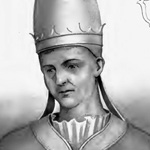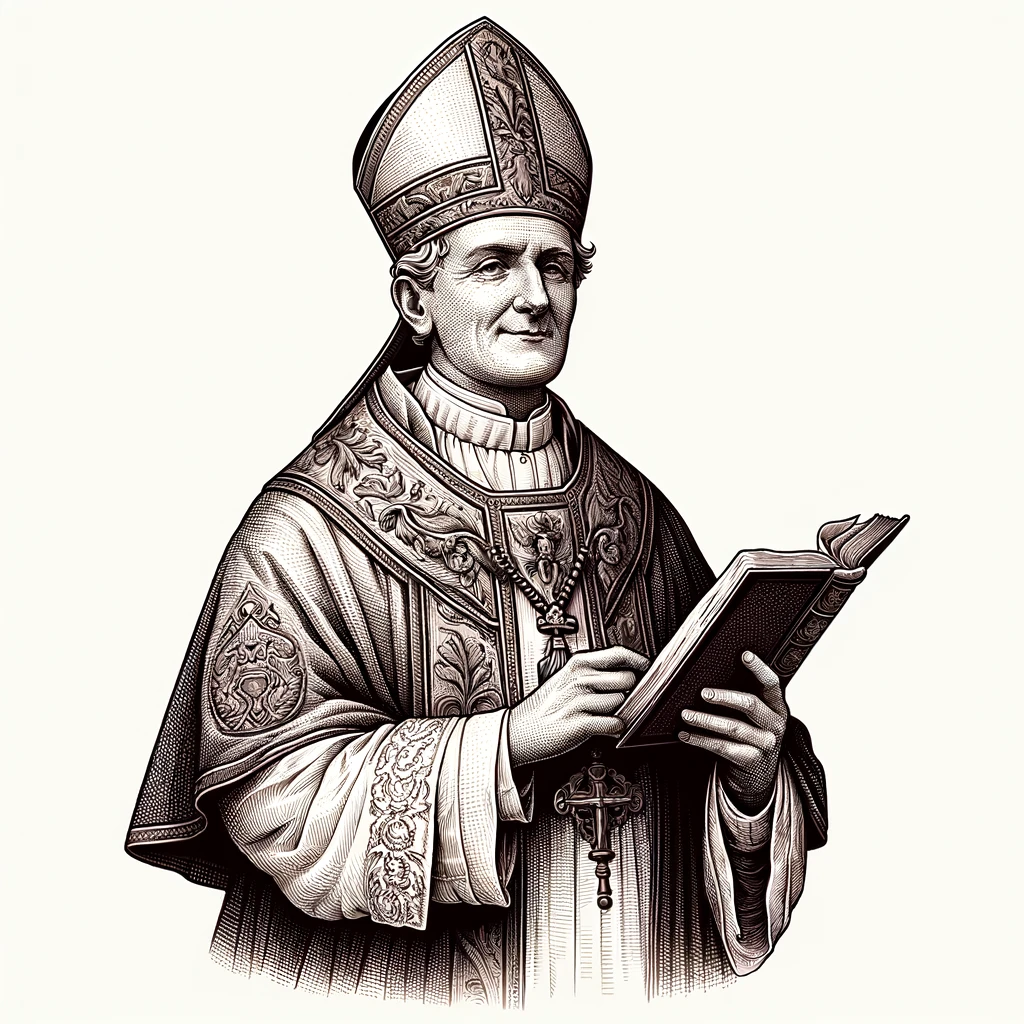
Pope Valentine was one of the shortest-serving Popes in the history of the Catholic Church. He became Pope in the year 827, but what makes his story really interesting is that he was Pope for only a few weeks!
Let’s explore the story of Pope Valentine and find out what happened during his very short time as Pope.
In the annals of the Catholic Church, the tenure of Pope Valentine stands out, not for its length, but for the unique circumstances surrounding his elevation to the papacy and the brief period in which he served.
Ascending to the highest ecclesiastical position in 827, Valentine’s papacy lasted a mere two months, yet his story offers a fascinating glimpse into the complexities of early medieval politics, the role of nobility in the Church, and the rumors that swirled around the figures of authority during this era.
Early Life and Career
Pope Valentine was born in Rome, in the bustling region of the Via Lata, to a nobleman named Leontius. From an early age, Valentine demonstrated a keen aptitude for learning, which led to his education in the school attached to the Lateran Palace.
His intellectual and moral virtues did not go unnoticed; Pope Paschal I, recognizing his potential, elevated him to the position of deacon. Valentine’s career in the Church was marked by his piety and purity of morals, qualities that endeared him to the clergy and the Roman nobility alike.
He was later made archdeacon, a testament to his favor with Pope Paschal I and his successor, Eugene II.
Ascension to the Papacy
The death of Eugene II set the stage for Valentine’s unexpected rise to the papacy. In a break from tradition, Valentine was acclaimed pope by the Roman clergy, nobility, and people, who, in their eagerness, installed him in the Lateran Palace even before he was ordained as a priest.

This reversal of the normal ordination and enthronement procedure was unprecedented at the time and signaled a significant shift in the papal electoral process. Valentine’s consecration as bishop took place at St. Peter’s Basilica, notably in the absence of imperial representatives, underscoring the autonomy of the Roman factions in the selection of the pope.
Legacy and Influence
Pope Valentine’s election was emblematic of the growing influence of the Roman nobility in the affairs of the Church. The events that led to his papacy challenged the established norms set by the Lateran Council of 769, which had previously restricted the election of the pope to the Roman clergy.
The Ludowicianum of 817, however, had already begun to erode this practice by allowing the lay nobility to participate in papal elections, a trend that would eventually culminate in the control of the papacy by the Roman aristocracy in the tenth century.
Valentine’s papacy, though brief, is a poignant reminder of a period when the Church was at a crossroads, grappling with the influence of noble families and navigating the turbulent waters of ecclesiastical politics. His story, marked by rumors of his close relationship with his predecessor Eugene II—whether as his son or lover—adds a layer of human intrigue to the historical narrative, illustrating the complexities and challenges of leadership in the early medieval period.
Death
Pope Valentine’s death on October 10, 827, just weeks after his election, left the papal throne vacant once again, setting the stage for the next chapter in the ongoing struggle for influence and control over the spiritual and temporal leadership of the Roman Catholic Church.
His tenure, though short-lived, serves as a critical reference point for understanding the evolution of the papal election process and the ever-shifting dynamics of power within the Church and the broader society it sought to guide.
Here are some quick facts about Pope Valentine:
- Name: Valentinus (Latin for Valentine)
- Papacy Began: 827
- Papacy Ended: 10 October 827
- Duration: Approximately two months
- Predecessor: Eugene II
- Successor: Gregory IV
- Birthplace: Rome, in the region of the Via Lata
- Father: A Roman noble named Leontius
- Early Career:
- Demonstrated early aptitude for learning.
- Moved from school to become a deacon by Pope Paschal I.
- Praised for his piety and purity of morals.
- Rose to the rank of archdeacon under Paschal I.
- Election:
- Acclaimed pope by the Roman clergy, nobility, and people.
- Unusually, became pope before being ordained as a priest.
- Installed in the Lateran Palace despite his protests.
- Consecration: Formally consecrated bishop at St. Peter’s Basilica.
- Death: Died on 10 October 827, just weeks after becoming pope.
- Legacy:
- His election marked by the increased influence of the Roman nobility in the papal electoral process.
- Known for the unusual circumstances of his election, including being enthroned before priestly ordination.
- Controversies:
- Rumored to be unusually close to his predecessor, Eugene II, speculated to be either his son or lover.
- Historical Significance:
- His papacy illustrated the shifting dynamics of Church and noble power in Rome.
- One of the shortest-reigned popes in history.
List of Events In The Life of Pope Valentine
| Date | Age | Event | Title |
|---|---|---|---|
| 780 | Born | ||
| 820 | 40.0 | Appointed | Cardinal-Deacon |
| 820 | 40.0 | Elevated to Cardinal | |
| 31 Aug 827 | 47.6 | Elected | Pope (Roma, Italy) |
| 10 Oct 827 | 47.7 | Died | Pope (Roma, Italy) |